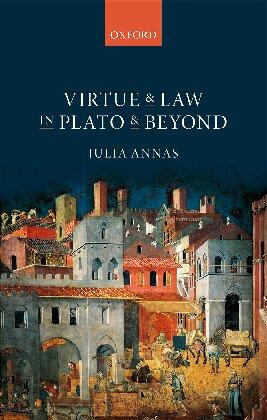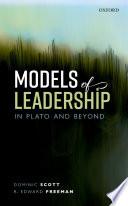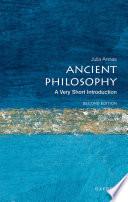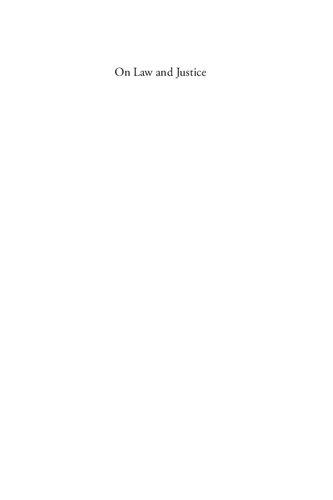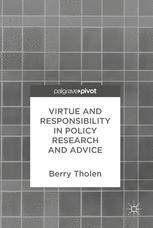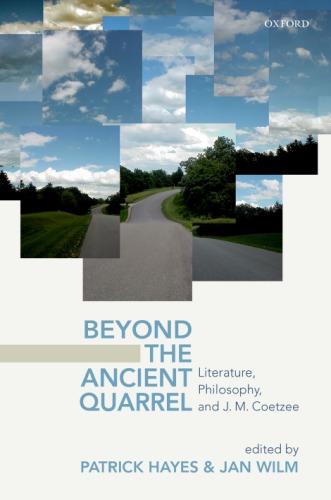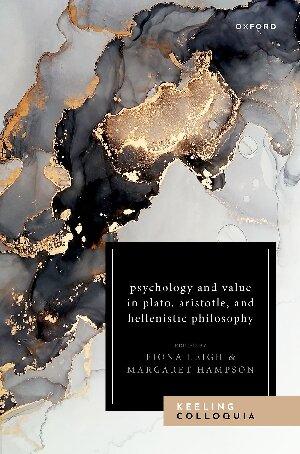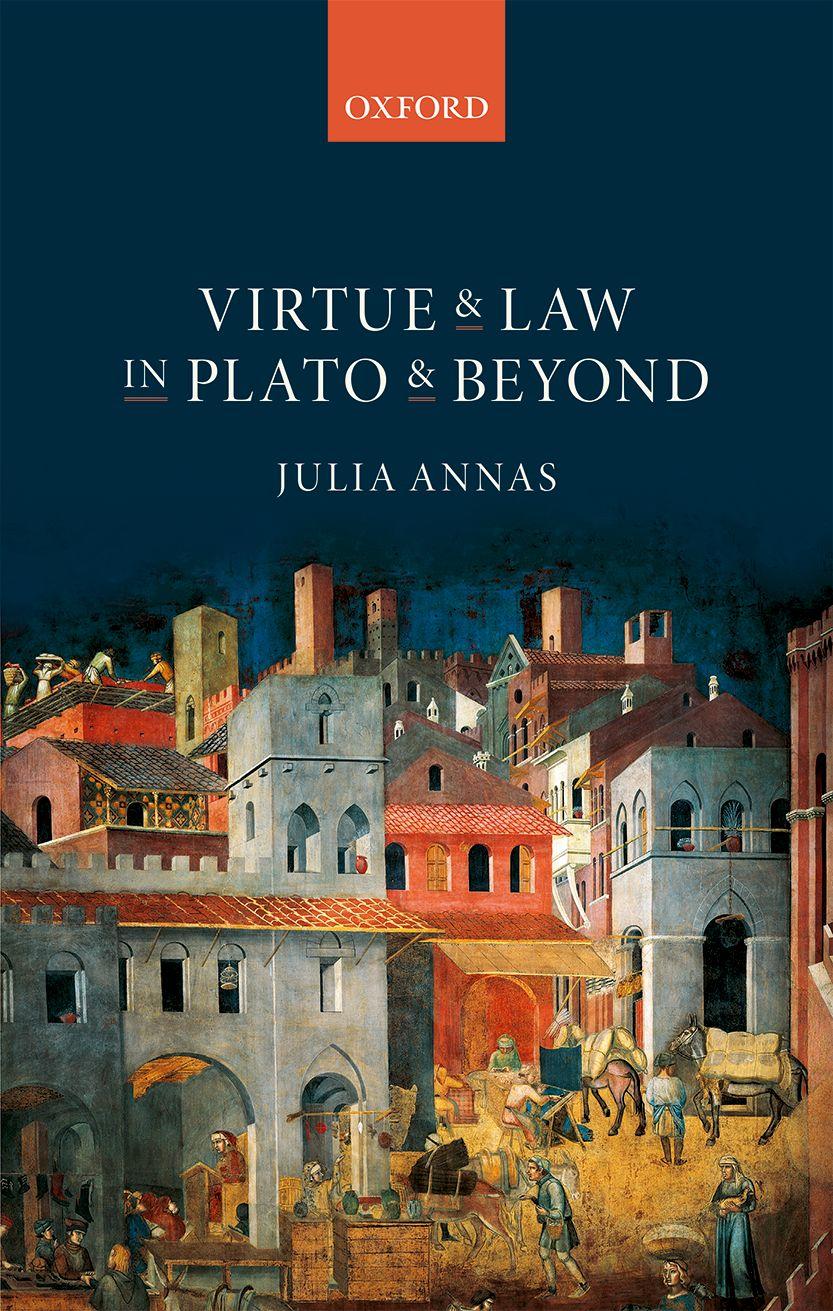Virtue and law in Plato and beyond First Edition Julia
Annas
Visit to download the full and correct content document: https://ebookmass.com/product/virtue-and-law-in-plato-and-beyond-first-edition-julia-a nnas/
More products digital (pdf, epub, mobi) instant download maybe you interests ...
Models of Leadership in Plato and Beyond Dominic Scott
https://ebookmass.com/product/models-of-leadership-in-plato-andbeyond-dominic-scott/
Ancient Philosophy: a Very Short Introduction , 2nd Edition Julia Annas
https://ebookmass.com/product/ancient-philosophy-a-very-shortintroduction-2nd-edition-julia-annas/
Chemistry: Atoms First ISE 5th Edition Julia Burdge
https://ebookmass.com/product/chemistry-atoms-first-ise-5thedition-julia-burdge/
On Law and Justice First Edition Alf Ross
https://ebookmass.com/product/on-law-and-justice-first-editionalf-ross/
Introductory Chemistry: An Atoms First Approach Julia Burdge
https://ebookmass.com/product/introductory-chemistry-an-atomsfirst-approach-julia-burdge/
Introductory Chemistry: An Atoms First Approach 2nd Edition Julia Burdge
https://ebookmass.com/product/introductory-chemistry-an-atomsfirst-approach-2nd-edition-julia-burdge/
Virtue and Responsibility in Policy Research and Advice 1st Edition Berry Tholen (Auth.)
https://ebookmass.com/product/virtue-and-responsibility-inpolicy-research-and-advice-1st-edition-berry-tholen-auth/
Beyond the ancient quarrel: literature, philosophy, and J.M. Coetzee First Edition Coetzee
https://ebookmass.com/product/beyond-the-ancient-quarrelliterature-philosophy-and-j-m-coetzee-first-edition-coetzee/
Psychology and Value in Plato, Aristotle, and Hellenistic Philosophy Fiona Leigh (Editor)
https://ebookmass.com/product/psychology-and-value-in-platoaristotle-and-hellenistic-philosophy-fiona-leigh-editor/
VirtueandLawinPlatoandBeyond
VirtueandLawin PlatoandBeyond
JuliaAnnas
GreatClarendonStreet,Oxford,OX26DP, UnitedKingdom
OxfordUniversityPressisadepartmentoftheUniversityofOxford. ItfurtherstheUniversity’sobjectiveofexcellenceinresearch,scholarship, andeducationbypublishingworldwide.Oxfordisaregisteredtrademarkof OxfordUniversityPressintheUKandincertainothercountries
©JuliaAnnas2017
Themoralrightsoftheauthorhavebeenasserted
FirstEditionpublishedin2017
Impression:1
Allrightsreserved.Nopartofthispublicationmaybereproduced,storedin aretrievalsystem,ortransmitted,inanyformorbyanymeans,withoutthe priorpermissioninwritingofOxfordUniversityPress,orasexpresslypermitted bylaw,bylicenceorundertermsagreedwiththeappropriatereprographics rightsorganization.Enquiriesconcerningreproductionoutsidethescopeofthe aboveshouldbesenttotheRightsDepartment,OxfordUniversityPress,atthe addressabove
Youmustnotcirculatethisworkinanyotherform andyoumustimposethissameconditiononanyacquirer
PublishedintheUnitedStatesofAmericabyOxfordUniversityPress 198MadisonAvenue,NewYork,NY10016,UnitedStatesofAmerica
BritishLibraryCataloguinginPublicationData
Dataavailable
LibraryofCongressControlNumber:2017940331
ISBN978–0–19–875574–6
Printedandboundby CPIGroup(UK)Ltd,Croydon,CR04YY
Preface
Theideasinthisbookhavebeenwithmeforsometime.Istarted thinkingaboutvirtueinthe Laws andlawinthe Republic inthemid2000s,andnoticedearlyonthatthereisanilluminatinganalogyinPhilo toPlato’sprocedureinthe Laws.Myattempttobringtogetherideas aboutPlato,Cicero,andPhilowasinterruptedby(successful)treatment forbreastcancer,andtheyear’senforced ‘vacation ’ mademethinkmore deeplyabouttheissues.IcontinuedtoworkmoreonthemasIrealized thatIneededtobackupmyviewsaboutvirtueinthe Laws withamore generalviewofthedialogueanditsmethodology.IhavegreatlybenefittedfromthetranslationandcommentaryofSchöpsdau,aswellasthe oldertextandcommentarybyEngland,andIamgratefultoMalcolm Schofi eldforlettingmeseehisintroductiontothenewCambridge translationofthe Laws beforepublication.Ialsodelveddeeperintothe worksbyCiceroandPhilo,andthephilosophicalandsocialbackgroundsagainstwhichtheywerewritten.IremainawarethatIama noviceinPhilostudies,andhopethatthishasnotbeentoomuchofa disadvantage.Ihavebeenexcitedbytherecentvigorousgrowthof interestinthe Laws,andamverygratefulfortheworkofMalcolm Schofi eld,ChristopherGill,SusanSauvéMeyer,ZenaHitz,AndreLaks, andChristopherBobonich.Asaresultofthebook’slonggestation period,Ihavethepleasureofthankingalargenumberofpeople.Over tenyearsIamsurethatIhaveforgottenthesourceofmanyhelpful conversations,comments,andemails.Iapologizeforthis,andwouldbe gratefultoberemindedbypeoplenotmentionedhere.Iowespecial thankstoMalcolmSchofi eld,tomycolleagueRachanaKamtekar, ChristopherGill,CharlesKahn,BradInwood,DavidO’Connor,Franco Trivigno,JeremyReid,GretchenReydams-Schils,andtworeadersfor OxfordUniversityPress.
Thebookcoversgrounddiscussedinthreepublishedarticles: ‘Law andVirtueinPlato’,inC.Bobonich(ed.), EssaysonPlato’sLaws, CambridgeUniversityPress,2011,71–91; ‘Plato’ s Laws andCicero’ s DeLegibus’,in Plato,AristotleandPythagorasinthe1stCentury BC, editedbyMalcolmSchofield,CambridgeUniversityPress,2012,206–24;
and ‘VirtueandLawinthe Republic’,in PresocraticsandPlato: Festschrift atDelphiforCharlesKahn ,editedbyRichardPatterson,VasilisKarasmanis,andArnoldHerrman,ParmenidesPress,2013,165–82.Papers dealingwithissuesinpartsofthebookhavebeendeliveredtothe followingaudiences,andIamgratefulfortheirresponsesandcriticisms: thePrincetonAncientPhilosophyColloquium;theSocietyforBiblical Literature;ConferenceonPhilosophyinthe1stCentury BC atCambridge; PhilosophyDepartment,UniversityofOslo;PhilosophyDepartment, UniversityofUppsala;CentreforAdvancedStudy,Oslo;theStanford AncientandModernPoliticalThoughtGroup;PhilosophyDepartment, UniversityofBergen;SeoulNationalUniversity;theKoreanSocietyfor Greco-RomanPhilosophy;theCorbettLecturefor2011,Universityof Cambridge;theBenedictLecturesonPoliticalThought2012,Boston University;theDanzigerLecture2013,UniversityofChicago;theHall Lecture2013,UniversityofIowa;theO’NeillLectures2013,Universityof NewMexico,Albuquerque;UniversityofEdinburghLawSchool;and theWestCoastPlatoworkshoponPlato’ s Laws. Again,Ithankeveryonewhohashelpedmealongtheway,and apologizetothoseIhaveunintentionallyomitted.Translationsare mineunlessotherwiseindicated.
1 Introduction
InthisbookIaimtodotwothings.IexploreastrandinPlato’ s Laws,a workwhichaftermuchneglectisnowtheobjectofagrowingandvery interestingbodyofwork.AndIalsoaimtofollowuptwoauthors influencedbythisPlatonicstrand,anunder-studiedwayofthinking aboutvirtue,law,andtheirrelationship.Thebookisnotageneralstudy ofthe Laws,whichwouldbeafarlargerundertaking.
IthasalwaysbeennoticedthatPlatoinmanydialogues,andparticularlythe Republic,hasagreatdealtosayaboutvirtue.Hehassomething tosayaboutlaw,too,inthe Crito and Statesman .Inthe Laws he explicitlyturnstothetopicoflawandspendsagreatpartofthework settingupamodellawcodeforaprojectedcity.Itisinthe Laws thatwe findtheissueoftherelationofvirtuetolawraisedandgivenanextensive answer;thisissomethingthatthe Crito and Statesman donotdevelop.1
Thereisclearlyanoticeablecontrastbetweenthe Republic andthe Laws,oneoftenputbroadlyasfollows.Inthe Republic theaimofthe idealstateistomakeallthecitizenshappy,whichtheyaretodoby developingthevirtuesappropriatetotheirwaysoflife.Therulersor ‘guardians’ arequalifiedtoruletheothersbyvirtueoftheirlongand demandingtraining;thiswillproducevirtuousandexpertrulers,who managethesocietyinthewaythatexpertdoctorsmanagemedical treatmentorexpertsteersmenmanageboats.Theirtraininginvirtue bringsunderstandingofwhatisbestforallthecitizensandthesocietyas awhole,whichtheyimposeontheotherstoproducevirtueandhappinessforall.InMagnesia,theidealprojectedcityofthe Laws,ontheother
1 The Crito isconcernedwiththequestionwhetherSocratesshouldobeytheactuallaws ofAthenswhenunjustlycondemned.The Statesman’sfocusisontheidealstatesmanand kindsofconstitution.Neitherisconcernedwiththeissueofvirtueandlawwhichis extensivelydevelopedinthe Laws.
hand,therulersareoffi cials;theymanagesocietyinamoreordinary andfamiliarway,byenforcingthelaws.InMagnesiathelawcode organizeseveryaspectoflife,from(andbefore)birthtodeath,andthis isimposedonall,rulersandruledalike,tobestrictlyobeyed.Magnesiansaretobemadevirtuous,andsohappy,byobediencetolawrather thantovirtuousrulers.
Thereisclearlysomethingrightinthiscontrast,butwithoutfurther examinationitcanbetakentoohastilyastheclaimthatPlato’sfocus hasmovedfromvirtueaswhatrenderscitizenshappytoobedienceto lawaswhatdoesso.2 Wego,apparently,from ‘the “guardian” unfettered bylaw;tothe “guardianofthelaw” whoisits “servant” andevenits “slave ”’,amovewhich ‘cleavesPlato ’spoliticaltheoryintotwodistinct halves ’ , 3 ofwhichthe fi rsthasbeenfoundfarmorephilosophically interestingthanthelatter.
SometimesPlato’sstressonobediencetolawinMagnesiahasbeen attributedtoincreasingpessimismabouthumannatureashegrew older.4 The Laws wasPlato’slastwork,anditwasleftunfinishedwhen hediedattheageof81;hemayofcoursehavebeenworkingonitfor sometimealongwithotherdialogues,butitcertainlyseemstobelongto hislateryears.Wehavenobasis,however,toinferthatoldagemade Platopessimistic,or,evenifwehadindependentevidencethatitdid,that hiswritingexpressedit.InfactIshallbearguingthatthe Laws presents uswitharemarkablyfreshandoriginalapproachtosocialandpolitical
2 Grote(1996)givesusthemostextremeversionofthis;inhisviewPlatohasinthe Laws justgivenupontheideasthatanimatedthe Republic ‘TheconceptofdogmaticomnipotencehadbecomestrongerinPlato’smindduringtheinterval[between Republic and Laws]’ (vol3p334); ‘Philosophyisinterdictedorputinchainsaswellaspoetry.An orthodoxreligiouscreedisexaltedintoexclusiveascendency.Allcrimeorimmoralityis ascribedtoadeparturefromthiscreed’ (vol3p306).Stalley(1983)islessextremebutstill findsalossinphilosophicalargument.
3 Barker(1959)p84.Barkerholdsthatinthe Republic ‘whereeducationhasgivena livingknowledge,lawhasbecomeunnecessary’ (p167).Asweshallsee,thisisfarfrom anythinginthetext.Barker’sviewoftheimportanceofthe Laws isshownbyhisdevoting twenty-fivepagestoitoutof207devotedtoPlato.
4 Cf.Cohen(1995)p43: ‘Inhis Republic Platorejectsthenotionoftheruleoflawin favoroftheruleofthewisestandbest,thephilosopherruler.Inhislastdialogue,the Laws, heexplicitlyabandonsthisprinciple,concedingthatitcannotbeimplementedbecauseonly agodwouldpossessthenecessaryqualities.’ InChapter3Iwilldiscussthepassagesthat haveledtotheclaimthatPlato ‘explicitly’ doesthis.
issues,andthattotreatitastheproductofacrabbyanddepressiveold ageistomissmostofwhatisinterestingaboutit.
AsIshowinChapter2,thereisagreatdealaboutlawinthe Republic, farmorethanwetendtoassume.Itisnotthecasethattherulersofthe idealcity,Kallipolis,rulewithoutlaws,orwithalooserelationtolaws. LawisveryprominentinKallipolis,soitisinterestingthatlawisnot usuallyprominentinthewaywethinkaboutit.InthechapterIdiscuss therelationinKallipolisoflawandvirtue,especiallythedevelopmentof therulers’ virtuouslives.Lawisbynomeansanewthemeinthe Laws, andweshallseethatwhenitcomestotherelationofvirtueandlawthe twodialoguesaredrawingonfairlysimilarmaterial.Thereiscertainlya markedcontrastbetween Republic and Laws,butthecontrastdoesnotlie inthe Republic’sdefendingtheruleofvirtuewhilethe Laws defendsthe ruleoflaw.Thedifferenceliesratherintherelationshipinthetwo dialoguesbetweenvirtueandlaw.Inthechaptersonlawinthe Republic andthe Laws (Chapters2–4)Iexplorewhatthisis,and fillouttheways inwhichthelaterdialogueismakingasubtlerandmoreinteresting claimabouttheroleoflawthanitisoftentakentocontain.
InChapter3IlayoutPlato’snewapproachtoconsideringaprojected idealsociety.Ithasoftenbeennoticedthatthe Laws’ approachismuch closertoexperienceandhistorythanthatofthe Republic,inwhichgreat effortsaremadetoturntheseekerforvirtueawayfromtakingseriously whatexperiencetellsusabouttheworld,andtogethertorelyinsteadon herpowersofthinkingandtheworldofthoughtthusrevealed.Itis strikingthatinthethirdbookofthe Laws we findthatinseekingthebest societywe finditusefultolookatactualsocietiesandthewaythatthey havedeveloped.ButPlato’sturntolearningfromexperiencegoesdeeper thanthis.InChapter3IwillshowthatPlato’sidealsocietyisnolonger conceivedpurelytheoretically.Rather,heistryingtoproduceacombinationoftwokindsofexistingsocietywhicharenormallytakentobe opposites:thoseofatyperepresentedbySpartaandthoseofatype representedbyAthens.ThelawsofMagnesiaare firmlyrootedina communalcultureoftheSpartankind,withacompulsorycommon educationdesignedtoproducecitizenswhothinkintermsprimarilyof thecommongoodratherthanthegoodofthemselvesandtheirown families.ButmuchofthelawcodeintroducesinstitutionsofanAthenian type,designedtoproducecitizenswhoareactiveparticipantsinthe governingoftheirsociety.Asweshallsee,Plato’sideaofparticipationin
governmentisnotjustthatofhiscontemporaryAthens;norishisideaof communalculturejustthatofhiscontemporarySparta.Heistrying rathertoproducesomethingnewbytakingoverwhatheseesasthebest ineachtypeofgovernment,whileblendingitwithwhatisnormallyseen asitsopposite,theproductbeingwhathehopesisanidealizedunified combinationwiththegoodpointsofeachandthebadpointsofneither. Thisisagrandlyambitiousclaim,asgrandasanyotherinPlato,nota feebleretreatfromtheorizing.Howsuccessfulitis,isaquestionthat can ’tbeposeduntilwehaveaproperlyfullunderstandingofit.Most relevanttomypurposeisthepointthatPlato’snewapproachrequires himtodealwithanissuewhichhedidnotfeeltheneedtofaceinthe Republic,namely,whatistheplaceofobediencetolawinthedevelopmentofvirtue.Inthe Republic thisquestiongoesunasked,andtherefore unanswered;inthe Laws itisfacedandansweredbyanewapproachto thecitizen’sattitudetolaw.Inthe Laws,IargueinChapter4,Platonow insiststhateducationforvirtueonthepartofthecitizensrequiresthem tolearnexplicitly,andinternalize,obediencetothecity’slaws.Careis neededinestablishingpreciselywhatthisinvolves,sinceobviouslyany societyrequiresitscitizenstoseethemselvesaslaw-abiding,andtohave somedegreeofawarenessofthis.Whatdistinguishestheapproachofthe Laws is,toputitbroadly,thespeci ficandexplicitroleofconscious commitmenttostrictandunquestioningobediencetothelaws,accompaniedbycommitmenttounderstandingthemintheprocessofacquiringthevirtues.Thisissomethingabsentbothfromthe Republic and fromAristotle’sidealstateinthe Politics,thoughbothofthemrequire thedevelopmentofcitizenvirtuetoincludeawarenessthatthecity’slaws aretobeobeyed.Whatissometimescalled,inmodernterms,thevirtue oflaw-abidanceisbuiltintothecitizens’ educationinthe Laws inaway nottobefoundinthemorefamousworksthatcomebeforeandafterit. Itisthisdistinctivepositionofthe Laws whichIfocuson,oneIthinkis interestinginitself,aswellasforitspositioninancientpoliticalthinking, onewithouttheresonanceorlaterfameof Republic or Politics,but finding aplacewithintwolatertraditionsutterlydifferentfromtheworldofthe classicalGreekpolis.
Platoalsobreaksnewgroundingivingametaphysicalbackgroundto thelawsofMagnesia,astheidealcityofthe Laws istobecalled.Thisis theconcernofChapter5.Lawisnot,hethinks,tobeunderstoodmerely astheproductofpeopleincitiesdevisingsolutionstotheproblemsof
livingtogether.Suchlawshavenomoreauthoritythanthepolitical compromiseswhichproducedthem.Plato’sambitiousalternativeis thatlawinoursocietyisapartoftheworkingofreasoninthecosmos, andinBook10ofthe Laws hedevelopsacosmologywhich fillsoutthis idea.Lawistheobjectiveforceofreasoninthecosmos,whichwecan appreciatebothatthecosmiclevelintheregularitiesoftheheavenly bodies’ movements,andalsoinourselvesasmembersofcommunities. Lawiswhatproducesorderandregularity,andinidentifyingwithour reason,theaspectofusthatappreciatesthecosmicforceoflaw,weare doingourparttokeepourselves,andhencefromourperspectivethe cosmos,orderly.Sincecosmicreasonturnsouttobewhatthenatureof godis,whenweunderstandgod,lawisalsodivine,andindeedinone passagePlatocomesneartocallingMagnesiaatheocracy.Giventhe importancetoMagnesia’scitizensofhavingtherightattitudetothelaws, thiscosmicstoryhaswideimplicationsfortheroleincitizens ’ lifeof religion,notjustinthesenseofpartakingincommunityritualsbutof havingtherightbeliefsaboutGod,andthisinturnhasimpactonthe kindofcivicvirtuesthataretobedeveloped.Thisisthepointatwhich Platodepartsfurthestfromthemainstreamofancientpoliticalthinking aboutreligion,butwasfoundmoreresonantintheancientJewishand Christiantraditions.InChapter6Ifollowuponeimplicationofthe relationofvirtuetolaw,namelythatinMagnesiathedominanceof virtueresultsinareorderingofvaluesandprioritiesinpeople’slives,and thusamoredifferentwayoflifethanmighthavebeensuspectedat first.
InChapter7Istartwithdifferentresponsestothe Laws.Theidealcity inBooks7and8ofAristotle’ s Politics hasmanyaffinitieswiththe Laws anditseemsclearthattherewasinfluencebetweenthe Laws andthese twobooks.Buttheworkturnsouttohavemoreincommonwiththe Republic thanwiththe Laws asconcernstheissueforegroundedhere, thatoftherelationshipoflawandvirtue.Thereis,however,arealaffinity betweenideasattheendofthe Laws andtheStoicideaof naturallaw;the Stoicideacanbeseenasacomprehensibledevelopmentofideasabout lawandcosmicreasoninthe Laws (andalsothe Timaeus ).Thereare someimportantchanges.Themostimportant,andthemoststriking,is thatfortheStoicsnaturallaw,tobeidentifiedwiththeforceofcosmic reason,isuniversal,applyingtoeveryoneinthecosmos,anideathatgoes farbeyondPlato’smorelimitedclaimthatreasoninthecosmosunderwritesthelawsofamodelGreekpolis.TheStoicsalsoidentifylawinthis
sensewiththereasonoftheidealvirtuouspersonor ‘ sage ’.Thislatter raisesthequestionoftherelativeimportancetolawinthissenseof normativity ontheonehand itsbeingreasonwhich,althoughitfunctionsfrictionlesslyinthevirtuousperson,presentsitselftousintheform ofacommand with lawlikeform ontheother,actuallawsbeing typicallypresentedingeneralterms.
Ciceroinhis OntheLaws (DeLegibus)putsforwardanaccountofan ideallawcodewithmarkedlyPlatonicfeatures,andhisexplicitliterary referencestoPlato’ s Laws arenotmerelydecorative.Cicero,whoknows the Laws well,istakingoverPlatonicideasasdevelopedandnuancedby theStoics,andfollowsthemintwoways.OneistheStoicdirectionof takingthelawwe findinnaturetoapplytoallhumans.Theimportant distinctionisnotbetweentypesofpeoplebutbetweenthewiseand virtuous,whosethinkingisalignedwithnaturallaw,andtherestofus, whosethinkingisnot;beingunresponsivetoitweexperienceitas demanding obediencefromus.TheothernewfeatureinCiceroisthat hetakesuniversalnaturallawtobeembodied,mostly,inexistingRoman law,modi fiedatparts.Thislastpointhasraisedobjectionandeven ridicule,andapartfromthatitcertainlyseemstoclashwiththeclaim aboutuniversality.Cicero’sposition,however,turnsouttobedefensible andinteresting,oncewetakeaccountofreasonableinterpretationsof naturallaw,andinparticularofhowCiceroisdevelopingwhatheseesas aPlatonicversionofit.LookingatCicero’sworkinthelightofits Platonicforebearbringsintofocussomepointswhichenableusnot onlytoseeitmoresympatheticallybuttoappreciateCicero’sinteresting choiceoftraditioninpoliticalthinking.
InChapter8Iwilllookbriefl yattheworksofPhiloofAlexandria ontheTenCommandmentsandtheSpecialLaws.Philooccupiesa differentpositioninregardtoPlatofromCicero;heseeshimnotasa philosophicalforebearbutasapagan,inadifferenttradition,whose writingscanneverthelessbeputtousefulworkinPhilo’soveralltaskof commentingontheTorah.Still,heclearlyknowsPlato ’ s Laws well, andinimportantwaysshowstheinfluenceofPlato ’sideasinthatwork aboutvirtueandlaw.LikeCicero,Philobothclaimsuniversalityforthe lawwhichheseesasbasedinnature,andidenti fi esitwithaparticular lawcode,inhiscaseMosaiclaw.Again,thisisnotaweaknessofhis positionbutastrength,onceweappreciatetherolesinPhiloofvirtue inrelationtolaw.UnlikeCicero ’s,Philo’sdevelopmentofPlatonic
ideasaboutvirtueandlawleadstoaconsiderableredefinitionofthe virtuestobedevelopedinagoodsociety,aprojectinwhichhefollows PlatomorethanhedoesCicero.
Chapter9sumsupthemainstrandsofthediscussion.Plato’sdistinctivepositionaboutvirtueandlawinthe Laws doesnotgiverisetoa historicallycontinuoustradition.CiceroisfamiliarwithPlato,andso isPhilo,butthereisnoreasontothinkthatPhiloknewof,orwas interestedin,Cicero’ sunfinishedwork.Rather,whatisofinterestis thewayinwhichideasinPlato’ s Laws could findresonanceintwo verydifferentlatercontexts.
Thisapproachinancientpoliticalthinkingisnowadaysnotvery familiartous,becauseofthemoremainstreamtraditionsofbothinfluenceandmorerecentlyscholarshiponthe Republic and Politics.Noris itlikelyevertochallengetheattentionwhichthosetheoriesget.Itis, though,worthyofinterestandstudyinitsownright.Onereasonfor thisisthatitilluminatessomethingoftenassumedtobeabsentfrom ancientpoliticalthinking namelytherelationofpoliticalorganization toreligion.Religionisoftentakentohaveonlyindirectrelevanceto ancientpoliticalthought.Ancientreligionoccupiedaverydifferentplace insocietyandculturefromtheplaceithastoday,mostlybecause contemporaryformsofreligionplacefarmoreweightbothoncreeds andbelief,andonreligionasunifyingcommunitiesofbelievers,while ancientreligionisbetterunderstoodintermsofpracticesandrituals, unifyingcommunitiesofculture.(Althoughabriefstatementofthis contrastinevitablyoversimplifiesit,itisbasicallycorrect.)However, Platointhe Laws takesupapositionaboutreligionwhichisunusual forhistimeandplace,onewhichfailedtoresonatewithAristotleand mainstreamancientpoliticalthought,butinterestedbothCiceroand Philo,inwaysreflectingthedifferencesintheircultureandintheirown attitudestoreligion.PhilohadgreatinfluenceonsomeearlyChristian thinkers,notablyClementofAlexandria,butIwillnotherefollowPlatonic influencefurtherintothistradition.5
TherearetwoissueswhichIwillleaveasideinthiswork.Oneisthe fascinatingrecentdevelopmentofworkonlawandvirtueinphilosophicalandlegalstudies.Ihavereadsomeofthisliteratureandfoundmuch
5 SeeRunia(1993)and(1995).
ofinterestinit,6 butIhaveconsciouslyrefrainedfromtryingtoapplyit totheancienttexts.Rather,Ithinkthattheancienttextshavetobe interpretedintheirowncontextsinordertobringintofocuswhatisof mostinterestinthemtous,anditisonlythenthatwecanreasonably takethemaspartnersincontemporarydebate.
Theotherissueisthatoftheso-called ‘developmentofPlato’ s thought’.Idon’tengageinanydebatesaboutthedevelopment,ornot, ofPlato’soverallthinkingbetween Republic and Laws.Itakeitasobvious that Laws isthelaterdialogue,butIalsotakeitthatwearelikelytogain obscurityratherthanclarityfromtryingto findanarcofdevelopmentof Plato’soverallpoliticalthinkingthatstartswiththeoneworkandends withtheother.MyownpositionisthatPlatoconsistently,throughouthis intellectuallife,heldtoaverygeneralthesisaboutpoliticalandsociallife, namelythattheonlygoodsociety,oneworthlivingin,isonewhichhas theunifiedoverallaimofmakingitscitizenshappy,andthatthiscanbe achievedonlybyhavingthemeducatedandformedtodevelopthe virtuesandsotolivehappily.Howyouthinkthisisbesttobeachieved canobviouslytakemanyforms,andpresupposesverydifferentlevelsof generalityonwhichtheachievementofthegoodsocietycanbeenvisaged. Republic and Laws aretwowaysinwhichPlatoworkedouthis visionofhowthegoodsocietycanbeachieved.Neitherisablueprintfor overexcitedidealiststogooutintothecountrysidetotrytoputinto practice.Noristheirrelationshipwelldescribedbysayingthat Republic believesinthepossibilityofphilosopher-rulerswhereas Laws ispessimisticaboutthis.NorarethesetheonlytwowaysinwhichPlatothought abouttheachievementofthegoodsociety;apartfromthe Statesman thereisalsotheAtlantisstoryinthe Timaeus and Critias ,aUtopian narrativewithaphilosophicalpurpose.7 Ingeneral,seeingPlato’sworks asstationsonalineofoveralldevelopmentofhisthoughtisunhelpful. Ihopethatthisstudyofthe Laws willcontributetothegrowingbodyof workstudyingitinitsownright.
6 SeeSolum(2013)foranexcellentaccountofthemainissuesincontemporarylawand virtue.
7 Seemy(2010b)fortherelevanceoftheAtlantisstorytothe Republic’smainargument.
2 Lawinthe Republic
Lawinthe Republic?
Inthe Republic Socratessketchesanideallyvirtuoussocietyinorderto illustratein ‘largerletters ’ whatvirtueisinindividualpeople.Weneedto dothisinorderto findtheanswertothecrucialquestionofhowwe shouldlive howweshouldlive,thatis,ifwearetolivehappylives. Platotakesitforgranted,astheancienttraditiondoes,thatweallwantto livehappylives.Thisis,aswouldbeunderstoodbyhisaudience, eudaimonia:happylivesinthesenseofliveslivedwell,satisfying, flourishing lives.Itwouldnotoccurtoanybodythatthehappinesshetalksabouthere couldbeastateoffeelingpleasure.The Republic’smainargumentisthat mylifewillbelivedhappilyonlyifIlivemylifeinawayinwhichmyoverall aimislivingvirtuously,anaimwhichstructuresmylifeinwaysthat organizeandprioritizemyothergoalsandvalues.Thecitywhichmodels thisonalargerscaleis,correspondingly,onewhichisvirtuous,andso happy.1 Thecrucialvirtueinbothcasesis dikaiosunē (justice),whichissaid tobethesameinbothcases,namelyacertainrelationbetweenthepartsof aunifiedwhole.Thuscityandsoulillustratetheverysamething,namely justice,exploredintheoverallframeworkofsearchforananswertothe question,whatisagoodorabadlifeforustolive.
Giventhisoverallframework,it’sunderstandablethatstudyofthe ideallyvirtuouscityofthe Republic (whichIshallhenceforthrefertoas Kallipolis)tendstofocusonwhatitshareswiththeideallyvirtuous individual itscomponentsandtheirrelationships whileissueslike thatoftheroleoflawinKallipolishavegoneunseenoronlypartially
1 Itakeitthatthecityishappywhenandonlywhenitscitizensare;Idon’thereenter intocontroversiesonthispoint.
seen.
2 Theindividualhasthreecomponents:reason,spirit,andthe desires.Onlywhenreasonisabletodoitspropertask,thatofruling thewhole,cantheotherpartsperformtheirownpropertasks;whenthis comesabout,allthecomponentsareintherightrelationtooneanother andsojusticeresultsasthevirtueofthepersonasawhole,thevirtue enablinghimorhertolivevirtuously,andsohappily.Sincejusticeisthe sameincityandindividual,itmayseemobviousthatjusticewillresultin thecitywhenwe findthesamerelationshipsamongitscomponentsas we findamongthoseoftheindividual.
Andthishasunderstandablybeenthemainfocusofstudyofjusticein thecity.InKallipolispeople’slivesaresoorganizedthattheyfunction withintheirappropriatetype,ofwhichtherearethree.Theproducers, mostlyfarmers,providetheinfrastructureofthecity’slife,andaretaken tobefocussedonthesatisfactionoftheirowndesires,andonthemeans tothis,mainlymoney.Theauxiliariesarefocussedonhonourandstatus, andformthemilitarypartofthecity.Therulersorguardiansare focussedonpursuingandunderstandingtruth,andtheyaretheonly onesinthecitywhocanunderstandwhatisbestforthecityasawhole, ratherthanmerelyforthemselves.Hence,althoughtheirgreatestwishis tospendtheirtimeinintellectualpursuits,theyhavetorulethecityin turn,sincetheyaretheonlyonesinthecitywiththerighttemperament andtrainingtotranslatetheirintellectualunderstandingintopractice whichisintheinterestsofall,andsoproductiveofvirtuous,andso happy,livesforallthecitizens.
Therulersruleandtheothercitizensobey;thereisanextreme asymmetryofpower.Platoiscompletelyunworriedbythis.Theguardiansarenotaccountableforwhattheydoorfortheordersthattheygive totheothers,eventhoughtheymaylieandmisleadinwaysforbiddento theothers.Kallipolisisnotatransparentsociety,noronewhereordinary citizensparticipateinthewaysthattheirlivesareorganized.Ruleofthis absolutekindisappropriate,accordingtoPlato,onlywheretherulers actuallydohavethekindofunderstandingthatarulerneedstorulewell, anditwouldbeasabsurdforsucharulertobeaccountabletothe ignorantasforanexpertinapracticalskilltodefertoalayman.The
2 RecentexceptionstothisgeneralattitudeareSchofield(2006b)andLane(2010). Morrow(1993),inhismagisterialworkonthe Laws,noticesthatthe Republic doescontain theruleoflaw(pp.577–83),butthispointhasnotbeenprominentlytakenup.
rulersofKallipoliswillhavethisunderstanding,inPlato’ssketchofthe society,andafairlylargepartoftheworkisdevotedtoasketchofthe longstagesofformationandeducationthattheywillgothroughinorder tobeabletoachievesuchunderstanding.
Itisthustherulers’ formationandeducation,their paideia ,whichis crucialforbothsettingupandmaintaininganideallyvirtuouscity.This isstressedsounrelentinglythatitisnotsurprisingthataccountsof Kallipolisdonotemphasizelaws,sometimesindeednotevenmentioningthem.Lawis,however,pervasiveinthe Republic,andtakingaccount ofthisoftenunderappreciatedfacthelpsustoseemoreclearlywhatthe work’srelationistothe Laws. 3
TheNormalityofLaw
Intheancientworldreaders(morelikelyhearers)ofthe Republic would assumethatofcourseKallipolishaslaws;anycityhastohavelaws.This isanimplicitbackgroundassumptionthroughoutthework,unmarked asassumptionstendtobewhentheaudience findsthemobvious.(Hence thelaterapocryphalstorywhereDiogenestheCyniccomplainstoPlato thattherewasnoneedtowritethe Laws,sincehehadalreadywritten the Republic aboutacitywithlaws.4)Thrasymachusassumesthatcities passlawsintheinterestoftherulers.5 Glaucondescribestheoriginsof justiceasacompromisethatresultsinlaws.6 Thelawsare,alongwith thepoets,asourceofinformationaboutthegods.7 Inactualcities,young peoplewhoprematurelyacquiretheabilitytoarguecometodespisethe lawsandtobe filledwithlawlessbehaviour(paranomia).8 Treatingthe lawsunseriouslyleadstopassinglawsthatareignored,andtothedestabilizingofbeliefsaboutvalue.9
Moreover,atightconnectionbetweenlawandindividualcharacter appearstohavebeenreadilyassumed.Protagoras,inthedialoguenamed afterhim,followsanaccountoftheeducationoftheyoungby
3 HereIammodifyingtheaccountinmy(1981)105–6.Foramoredetailedaccountsee my(2012).
4 StobaeusIII13.45.Lane(2013)underlineshowunusualitiswhenPlutarchrepresents Lycurgus(inhis Life)asgettingSpartatofunctionwithlawslearntbyheartbutnotwritten down.
5 Republic 338d6–339a4. 6 Republic 358e2–359b5.
7 Republic 365d9–e2. 8 Republic 537e4. 9 Republic 426e3–7,538d6–e4.
commentingthatthelawstakeoverthistask,andmaketheyounglive ‘within’ thelawsinthewaytheyaretaughttowrite,literally,betweenthe linestheteacherdraws.10 Inthe Republic we findthatourdesiresare disciplinedbythelaws,thoughsomecanemergeaslawless(paranomoi)in ourdreams,andinthetyrant’swakinglife.11 Kallipolisisdescribedsoasto belikeanormalGreekpolisasfarashavingandenforcinglawsgoes.
Nomos,theGreektermforlaw,appliesnotonlytoofficiallyestablishedlawsbutalsotosomesociallysanctionedcustoms,sometimes called ‘unwrittenlaws’.Lawsarethoughtoftogetherwithwaysoflife: aphilosopher,saysSocrates,mightpersuadepeopletoadoptthelaws andwaysoflifeheestablishes,andintwofamouspassageshetalksof startingfromscratchwiththeyoung,writinglawsonacleanslate,and bringingthemupindifferentwaysandlawsfromthoseoftheirparents.12 Therearealso nomima (atermwhichhasnodirectlycorrespondingEnglishword),matterswhicharetoospecifictolegislate,butare takenveryseriouslybysociety.InKallipolistherulerswillrespect nomima suchascourteousmannersoftheyoungtotheold,appropriate fashionsinclothesandhaircutsandthelike.Learningthesesocially sanctionedkindsofbehaviourisanimportantpartoftheireducation.13 Eveninactual,non-idealsocietysome nomima arecorrectinthatthey implicitlyreflectPlato’sownaccountofourpsychology actionsare takentobe fineorshameful,forexample,accordingtothewaythey reflectthedominanceofthebetterortheworseaspectoftheperson.14
LawgiversforKallipolis
ThemostfamiliaraspectsofthesketchofKallipolisasanideallyvirtuous cityaretheregulationsforthebehaviourofthethreedifferenttypesof peopleinthecity,whicharestrictlydistinguishedandkepttotheir
10 Protagoras 326c6–e1. 11 Republic 571b3–c1,574d8–e2.
12 Republic 502b3–8,501a1–7,and540e4–541a7.
13 Republic 425a7–b5,537d1–3.
14 Republic 589c6–d3.Forapracticetobe nomimon isforittohavesomeclaimto legitimacy(IowethispointtoFrancoTrivigno),whetherintermsofwrittenlaworof sociallyagreedsanction.Thereisafamouspassagein Republic (475b4–480a13)where ‘the many nomima ofthemanyaboutthe fineandotherthingsrollaroundbetweennot-being andpurelybeing’ (479d3–5).Thisclaimisnotintendedtounderminetherulers’ teaching othersbeliefsaboutwhat fineandjustthingsare nomima,sincetherulersturnouttobe peoplewithknowledgeaboutthis,notjustthebeliefswhich ‘themany’ have.
functionallyoptimalroles.Thisisthemostoriginalandoutrageous aspectofKallipolis,andittendstodrawourattentionawayfromthe pointthatthecityissetupbylawgiversinaccordancewithalawcode, andisinthisrespectlikeanordinaryGreekcity,whichwouldhavea codeoflawsascribedtohumanordivinelawgivers.Kallipolisisbuiltup viathediscussionbetweenSocratesandhistwointerlocutorsasthey conceiveofthemselvesasthecity’slawgivers.Atthestartofthediscussionofthetypeofeducationneededtoproducetherulers,Socrates producesexamplesofbadstorieswhichfalselypresentthegodsas quarrellingandasproducingevilsforushumans. ‘We,’ hesays, ‘will notallow’ thesestories;nobodyinKallipoliswillbepermittedtosay thesethings,ifthecityistobewellgoverned(eunomeisthai).Adeimantus,withwhomheistalking,saysthathelikes ‘thislaw’,andvotes forit.Socratesgoesontosaythatthisisoneof ‘thelaws(nomoi)and patterns( tupoi )thatpoetsmustconformto ’,andthediscussionconcludeswithAdeimantussayingthatheagreeswiththesepatterns,and withputtingthemintolaw.15 Theideaoflegislatingforthecity, producinglawsforitscitizenstoobey,ispresentedasanaturalway ofdescribinganideallyvirtuouscityandthewayitspeopleshould behave.Thispatternisfollowedinanumberofcases.Glauconistold, forexample,that ‘thisishowyouwilllegislateinthecitybeing founded ’,aboutpropernon-sexualeroticconduct,aswellasabout medicine,judging,theroleofwomen,andtheextendeduseoffamily terms. 16 Hencewe findthattheremustalwaysbeinthecityanelement ofthesamereason(logos)astheone ‘accordingtowhichyou,Glaucon’ laiddownthelaws.17
Socratesalsorepresentshimselfasalawgiver,togetherwithGlaucon, sayingoftenthat ‘ we ’,thetwoofthem,havelaiddownthelawsfor Kallipolis. ‘We’,forexample,Socratessays,werenottooidealinlegislatingthatwomenaswellasmenshouldberulers.18 Thesereferencesto lawgiving,theirfrequency,andthethoroughnesswithwhichtheyare followedthroughshowthatlawgivingisherenotjustadispensable
15 Republic 380b3–383c6–7.Thereisafullerdiscussioninmy(2012)ofthepassages discussedinthischapter.
16 Republic 403b4–c2,409e4–410a4,458c6–d4,463c6–e1.
17 Republic 497c7–d2.
18 Republic 456c1–3.Seealso534d3–e1,417b6–8,471c1–3.
metaphorfordescribingthesettingupofKallipolis.Socratesandhis interlocutorsarealsodescribedoccasionallyasfoundingthecity,oras bringingupthecitizens,butthesearenotalternativestotheideaof lawgiving,butexpansionsofit.ThewaythatKallipolisisfoundedasa citystructuredbylawsaswellasacitysetuponthebasisofdividing peoplebytypeisimportantforanall-roundunderstandingofPlato ’ s conceptionoftheideallyvirtuoussociety.Ifanaimisimportantfor achievingtheideallyvirtuoussoci ety,Platotakesitthatnoargument isneededforittobetakenasanappropriateobjectforlegislating. Theneedto ‘breed ’ wellistakenjusttobetheneedtolegislatethe marriagefestivals.Mathematicalstudiesareimportantintherulers’ education,sotheyarerequiredbylaw.Theneedtogetridof ‘ undesirableelements’ inthecityisrepresentedastheneedforalegislatorto actasadoctorincuttingthemout.Theimportanceofunityinthecity isputforwardasitsbeingthehighe stgoodforalegislatortoaimat.19 Itisnotsurprising,then,thatKallipolisispresentedasanexampleof ‘good lawandorder’ , eunomia.A eunomos cityisonegovernedbylawandwhere thecitizensareobedienttolaw.Itisassuchacity,ashiningexampleof goodlawandorder,thatKallipolisischaracterizedashavingpeople whodevotetheirlives,andhealth,todoingtheirjobs;asbeingaunifi ed society,whereeveryoneispleasedandgrievedbythesamethings;as beingasocietywhichrejectstraditionalpoetrybecauseofitseffectson thecitizens’ souls. 20
Infact,onceyoustartlooking,you fi ndthatlawsarementioned frequentlyinthedescriptionofthecitizens’ lives.Therulerswill chooseasuitableplacefortheir ‘ camp ’,inparttocontrolthoseinside incaseanyonerefusestoobeythelaws.Theywillnotchangeanyof thecruciallawswhichstructuretherulers’ education.Thecitizenswill beineverywayatpeacewithoneanotherasaresultofthelaws. Havingwomenasrulers,theabolitionofthenuclearfamily,the regulationofbirths,andrewardsforbraveryinwarareallcalled laws(nomoi). 21
19 Republic 459c6–460a6,525b9–c6,564b9–c5,462a2–7.
20 Republic 406c1–8,462d1–3,605a2–b5,607b2–c8.
21 Republic 415d6–e3,445d9–e2,465b6–7,453c8–d2,457b7–c8,461b3,e2–3,465a1, 468b13–c3,471c1–3.
Law,Character,andEducation
IhavepointedoutthatmuchmoreofthecharacterizationofKallipolisis doneintermsoflawthanwetendtobearinmind.Sofar,however,it mightbethatitismerelythattheinstitutionsofKallipolisaredescribed intermsoflawbecausethatjustisthedefaultwayofdescribingthesetupofanycity,evenanideallyvirtuousone.However,lawintheideally virtuouscityismoredeeplyrootedinPlato’sthinkingthanthis.Notjust thecity’sinstitutionsbutthecharactersofthepeopleinitaredescribed intermsoflaw.
Therulersallgothroughthesharedsystemofeducation,whichisset upbylawswhicharefoundationaltothecity.Thisformstheircharacter, whichisthoroughlylaw-abidingandlaw-enforcing.Beforedeveloping thisfortherulers’ goodcharacter,itisinterestingtoseethatthemutual dependenceofcharacterandformationbyasystemoflawisfollowed throughforfaultycharacteraswell.
Thedecline,inBooks8and9,ofthevirtuouspersonisfamiliarasa seriesofincreasinglydestructivechoicesmadebyanindividualatthe fourstagesoftimocrat,oligarch,democrat,andtyrant.Thisisadecline incharacter;ateachstagetheperson’scharacterhasbeenworsenedby previouschoicesandwayoflife,sothateachfurtherchoiceleadstoan evenworsecharacterandwayoflife.It’slessfamiliar,thoughequally stressedinPlato,thatthisdegenerationisalsoaprogressiverejectionof law.Thetimocratscometovaluemilitaryhonourmorethanvirtue and theydothingslikespendingothers’ moneybecausetheyrunawayfrom thelawlikechildrenrunningfromtheirfather.Theydothisbecausethey havebeenbroughtupbyforceratherthanpersuasion anideawhich willhaveresonanceinthelaterwork.22 Theoligarchscometovalue moneyoverallotherends andtheypervertexistinglaws,whilethey andtheirfamiliesdon’tobeythem;thentheyforcethroughdivisivelaws whichwidentheinequalitiesbetweenrichandpoor.23 Thedemocratic personrefusestogiveanyofhisaimspriorityinhislife andpeoplein thedemocraticstategetsofondoffreedomthattheyendupnotpaying attentiontoanylaws,writtenorunwritten.24 Thetyrannicaltypeof personisdominatedbyasingledesire andwhenheisnolongersubject
tothelawsheactsoutdesiresinwakinglifewhichinanordinarycity peoplerepressbecauseofthelaws.Theactualtyrantistheperson furthestfromphilosophyandreasonandalsofurthestfromlawand fromorder.25 Badandweakcharacter,then,correspondscloselyto disrespectandcontemptforlaw;charactergetsworseasthiscontempt getsevermoreextreme.
Goodcharacter,correspondingly,goesalongwithrespectforand obediencetolaw.Agoodpersonsufferingaseriousloss,wearetoldin onepassage,goesalongwithreasonandlawwhichtellhimnotto succumbtoemotion.Onepartissusceptibletoemotion,butanother partisreadytoobeythelawandtodowhatthelawbids.Herethe contentofthelawisremarkable,anticipatingsomeStoicthoughts.The lawtellsthepersonthatitismost finenottogrieve,thatitisunclear whethertheoutcomewillbeforgoodorforill,thathumanaffairsarein anycasetrivialthings,andthatgrievinggetsinthewayofuseful deliberationaboutthesituation.26 Thelawgivessuchspecificadvicein thecontextbecauseitishereidentifiedwithreason,whichunderstands whatisbestforthepersonasawhole,notjusttheaspectimmediately affected.Thesameistrueofthepassageattheendofthemainargument, whereSocratesputsforwardunflinchinglytheviewthatweshouldallbe ruledby ‘thebest’,sothatsomeoneweakinreasonshouldberuledby reason ‘fromoutside’.Itisbestforalltoberuledinthiswaybydivine reason, ‘sothatasfaraspossibleallmaybealikeandfriends’.This passageisnotorious;lessfamiliaristheimmediatelyfollowingpoint: ‘Thelawmakesitclearthatthisiswhatitintends,inbeinganallyto everyoneinthecity’ . 27 Again,thecontentoflawandofreasonconverges; thelawpresentsreasontothecitizensinadirectiveway.Inthe Republic Platotakesitforgrantedthatthiswillbedonebyforceandalsoby persuasion;28 hedoesnotanalysethisfurther,thoughwecanseefrom thispassagethattherulers’ thinkingwillalreadyalignwithwhatthelaw demands,sothatitisonlytheothercitizens,whoseexerciseofreasonis encumberedbytheirdesiresandambitions,whowillexperiencethe demandoflawasreasondemandingfrom ‘outside’ them.Lawisinthe Republic treatedgenerallyasreasonappliedinthecity,thedirective
25 Republic 574d8–e2,587a8–12. 26 Republic 604a1–d1.
27 Republic 590c7–e2.
28 Cf. Republic 519e1–4(translatedbelow),wherewe find ‘persuasionandnecessity’ .
aspectofreason.Thereisnoanalysisoftheformoflaw,orofhowthe applicationoflawistocorrespondtotheusesofforceandofpersuasion.
Law,then,workswithreason,andseemsgenerallytobethoughtof asthedirectiveapplicationofreason,thoughwithoutexplicitdiscussionofhowitdoesthis,orinwhatform.Intheearlierbookswhich describetherulers ’ education( paideia)lawissometimessaidtowork togetherwiththiseducation,asisappropriategiventhatthisaimsto developtheirreason.AlongpassageinBook4showsthatlawand educationareenvisagedasworkingtogether.Thepassagegoesfrom 423c6to427b1,andisimportanttolookatindetail,sinceithasbeen usedtodefendtheclaimthattherulersofKallipolisare not boundby lawsinthewaytheyrule.
Itisvital,Socratesbegins,tokeepthedifferenttypesofpeopledistinctso thatunqualifiedpeopledonotgettoberulers.Thiswillactuallybesimple todo(phaulon)aslongasoneimportantpointiskeptinmind notjust important (mega)butcrucial(hikanon).29 Thisistheeducationand upbringingoftherulers. ‘Iftheyarewell-broughtupandbecomemoderate(metrioi)theywilleasilydiscernallthesethingsaswellasotherthings thatwearenowleavingout,andtheacquisitionofwivesandmarriages andprocreation thepointbeingthatallthesethingsshouldbeorderedin accordancewiththeproverbthatfriendsaretheoneswhoshare.’30 This willstartimprovementrollingforward,Kallipolitaneducationrendering eachgenerationbetterequippedtoimprovethefollowingone.
Therulersmuststickfasttothissystemofeducation.Innovationsin educationareforbidden,sincethesearemoredangerousthantheymay seem;theyinevitablyleadtochangesinthecity’slaws.Oncepeopleget theideaofchangingeducationandculture,lawlessnesstricklesin; startingwithindividualcharactersitspreadstotheiractivitiesand organizations,and finallytolawsandconstitutions.Toavoidthis,the rulerswhentheyarechildrenaretoplaygameswhichareorderedand law-abiding;otherwisetheywillnevergrowuptobelaw-abidingand
29 423d8–e2. Hikanon cannotherehavethesuggestionof ‘merelysufficient’ or ‘just adequate’,asthiswouldmakenosenseofthecontrastwith ‘important’.Itmustindicate somethingdecisiveorcriticalforthesuccessofKallipolis.
30 ThislookslikeareferenceforwardtotheproposalsofBook5,butinthepresent contextitdoesnotchangethegeneralpointabouttheimportanceforthecityoftherulers’ education.
goodpeople.Law-abidingness(eunomia)mustbeintroducedintotheir playfromtheverystart.31
Peopleeducatedinthisway,Socratescontinues,willrediscoverfor themselveswaysofactingwhichare nomima,inaccordancewithsocial norms,inmatterstoocontext-dependenttobesubjecttolegislation;the rulers’ educationwillthusresultingood,virtuouspeoplewhodon ’tneed legislationonsuchmatters(425a8–c8).Whataboutregulationofthe market,thetown,andtheharbour?Therearemattersofcontracts, marketcontractsbetweenpeople,contractsforwork,casesofabuse andassault,lawsuits,empanellingjuries,marketandharbourfees,and generalmarket,town,andharbourregulations(425c10 –d6).Hereweget acrucialpoint: ‘It’snotfairtocommand(epitattein)menwhoaretruly good;theywilleasilydiscoverwhatneedstoberegulatedbylaw’—as longastheyareabletokeep firmlytothelawsalreadysetupfortheir education(425d7–e4).Therefollowsanextensivecontrastwithcities whichareforeverlegislatingaboutthingslikecontracts,taxes,andsoon, tonoeffect,notrealizingthatitisthelackofapropereducationand characterformationinthemselveswhichrendersalltheireffortsuseless. Thetruelawgiver,Socratessummarizes,wouldhavenouseforthiskind oflawinanill-governedstate,sinceitisuseless.Norwillhehaveusefor itinthewell-governedstate,sincesomewillbeobviousandothers(the informalones)will flownaturallyfromthevirtuouswaysoflife.
MorethanonepointaboutlawinKallipoliscanbedrawnfromthis exceptionallyrichpassage,butnothinginitsuggeststhattherulersareto rulewithoutlaw,ortofeelfreetooverrulelawsortoextemporize withoutlaws.Socratesisnotclaimingthatlawsandlegislationare unimportant,andwehaveseenalreadythatKallipolishaslawstheway anyGreekcitydoes.Theimportantpointhereisthatgoodeducationwill producepeopleofgoodcharacterwhowilldevelopgoodcharacterinthe nextgeneration,thusstartinganongoingprocessofimprovement as longasthebasiclawsabouteducationremainuntouched.Itisthelackof thiseducationforgoodcharacterinactualcitieswhichreducestheirlaw makingtomereputteringaround.
Oncethegoodeducationhasitseffectandwehavepeopleofgood character,theycantakeovertheroleoflawgiversformatterswhichare
31 Republic 424b3–425a6.
lessimportantthantheeducationwhichproducesgoodcharacter.Hence theoriginallawgivers(Socratesandinterlocutors)donotneedtoproducelawsformattersliketheday-to-dayregulationofcourtsandcontracts,orharbourfees.Theycanbeconfidentthattheseminor regulationswillbeinthespiritofthegoodmajorlaws,bothbecause theselawsaregoodandbecausetheregulationswillbeproducedby peoplewhosecharactershavedevelopedwellbecausetheywerebrought upaccordingtothoselaws.Thisiswhy,aswiththecontext-dependent nomima likemanners,wedonotneedtogiveorderstopeoplewhoare perfectlycapableofworkingoutforthemselveswhattheyneedtodo. (Plato’susehereoftheterm ‘command’ , epitattein,isofinterest;itis whatthelawsdointhe Laws.AsPlatowouldlaterseeit,iftherulersare goodthereisnoneedoflawsgivingthemcommandsaboutmanaging theharbour;theycanproducetheselawsandregulationswithoutthe helpoffurtherlawstocommandthemtodothis.)
Thereisnothinginthispassagewhichclaimsorevensuggeststhatthe rulerswillrunthecourtsandmarketswithoutlaws,improvisingasthey go,orthattheywillsetuplawsforthisbutfeelfreetooverrulethem whentheirownjudgementdiffers.Theirtaskispreciselyto establish neededlawsandregulations formarketsandsoon,nottomanagethe citywithoutthem.Theywillframetheselawswellbecauseoftheirgood education,andsincethateducationbroughtthemuptobethoroughly law-abiding,thereisnoreasontothinkthatwhentheyestablishthese lawsaboutcourtsandharbourstheywillnotbelaw-abidingwhenthey runthecourtsandharbours.
Clearlythereisadistinctionbetweenthelawswhichstructurethe rulers’ formationandeducation,andthelawswhichtheyestablishonce theyarerunningKallipolis.Anotableexampleofthisisofcoursethe so-called ‘noblelie’ establishedbytherulerstocreatean ‘ideology’ for Kallipolis;thisisperfectlyinaccordwiththelawsstructuringtherulers’ education,eventhoughitusesopaquemeanstoorganizethelivesof theothercitizens.32 Thefoundationlawswhichstructuretherulers’
32 Republic 414b–415d.Aproblemhasbeenraisedonthegroundsthatallthecitizens aretoacceptthemyth,althoughthe firstgenerationtoestablishitmustbeawareofits artificiality.Butrulerswellbroughtupwouldnotbeworriedaboutapracticebeingopaque tosomebuttransparenttothem,iftheyunderstoodthatthiswasintheinterestsofall.For theideathatthe ‘noblelie’ ispartofanideologyofthecityseeSchofield(2006a)chapter7.
educationhaveproducedtheirgoodcharacters,andhavealsoproduced eunomia intheirsouls,sothatitwouldbeunthinkableforthemtorun thecityinarbitrarywaysratherthanestablishinglawstorun,for example,thecourtsandharbours.Theselatterlawsareproducedin thecontextoftheday-to-dayrunningofthestate,andsotheirproper establishmentneedsexperienceofthatandnotjustofthebasicprinciplesestablishingKallipolis,soSocratesdoesnotgointodetailabout them.Butthereisnoreasontothinkthattheyarenotreallyimportantor couldbetakenlightly.Thispassagedoesnothingtoshowthatrulersin KallipolisdonotenforcethelawslikerulersinotherGreekstates.Itwill beasenforcersoflawsthattherulerswillforcetheotherclasseswhere forceisrequired.33
Itisboundtoseemunfamiliarandstrangetousthatthemajorlawsof thestatearethoseestablishingtherulers’ education,whileitisleft tothemtosetuplawsnotonlyforrunningtheharbourandmarkets butalso,asthepassageabovemakesclear,thecourts.Ourassumptions aboutlawtendtogotheotherway:wethinkthatthecourts,with ‘lawsuits,empanellingofjuries,andcasesofabuseandassault’,willbe basicforthecity’slaws.ButinKallipolisthecourtsareaminordetail comparedtotheall-importanteducationoftherulers.Inthe Laws thereisanelaborateandinsomewaysinnovativecourtsystem,but inthe Republic courtsarereducedtoamatterofday-to-dayrunning, likethemarkets,andtheyhavenothingtodowiththeimportant lawsthatarefoundationalforthecity.Insimilardowngradingofan importantaspectofGreekcitylife,PlatoestablishesnopoliticalinstitutionsinKallipoliswhichestablishorexaminelawsonacontinuing basis.Thisisexplicitlyoneofthethingsheistryingtogetridof.
Moreover,Platotellsusnothingabouttheprocedureforestablishing thesemoreminor,circumstantiallaws.Wehaveablankwhereitwould behelpfulto findouthowtherulers’ virtuousexpertiseistranslatedinto thecontentoftheselaws.Onceagain,however,thereisnothinghereor elsewheretosuggestthatthesearenotseriouslawstobeobeyed,orthat
33 Thisisonelessonofthepassageat590c8–d6,wherethoseweakinreasonaretobe ‘enslaved’ tothepersoncontaining ‘thedivineruler’,notagainsttheirinterestasThrasymachusthought,butbecauseeveryoneshouldberuledbywhatisdivineandintelligent, whetherinternalorexternaltothem.Thiscanbeseenasakindofprefiguringoftheroleof lawinthe Laws.
therulers’ expertjudgementistoproducecase-by-casedecisionsrather thanapplicationofalaw.Indeed,Plato’slanguagerulesthisout:whatthe rulerswilleasilydiscernispreciselywhichthingsneedtobe regulated,to bedoneaccordingto law. 34 Wehavenoreasontothinkthattherulers areeverthoughtofasrulingwithoutlaws,orinwaysthatsubordinate eitherthecontentortheapplicationoflawtotheirownjudgement.
Inthelongpassagejustdiscussedwecanseethewayinwhichlawand educationworktogether,neithergivenpriority.Therulersarebrought uptohavegoodcharacterbytheirlearningtobelaw-abidingandto rejectlawlessness.Incomingtohavethevirtues courage,temperance, wisdom,andjustice theyhavealreadycometohaveanattitudeof conformityandobediencetothelaws;thatiswhyKallipolisis eunomos, acityofgoodlawandorder.Being eunomos isthegoalsaidtobetheaim forKallipolisanditscitizens fivetimes; eunomia,thedispositionto createandconformtogoodlawandorder,isthecrucialelementofthe rulers’ education,onetheymustaboveallstrivetopassontotheir successors. 35 Comingtoobeythelaws,then,generatesprogressin comingtohavegoodcharacter.Learningtobelaw-abidingandlearning todevelopgoodcharacterarenotassignedtodistinctprocesses;theyare seeningeneraltermsaspartsofthesameprocess,theeducation, paideia, thatwillproducevirtuousrulers.Soitisnotsurprisingthattherulers, oftencalled ‘guardians ’ , phulakes,arealsocalled ‘GuardiansoftheLaws’ , phulakestounomou 36
Wecannowseethattheroleoflawinawell-knownpassageinBook7 islesssurprisingthanmayat firstappear.Tothecomplaintthatin Kallipolistherulershaveaworselifethantheywouldotherwisehave had,Socratesreplies,
Youareforgettingthatthelawisnotconcernedtobringitaboutthatanyone classinthecityshouldbeoutstandinglyhappy,butrathertocontrivethat happinessshouldcomeaboutinthecityasawhole.It[thelaw] fi tstogether thecitizensbymeansofpersuasionandnecessity,makingthemsharewith oneanotherwhateverbenefi teachgroupcancontributetothecommunity. It[thelaw]producesmenofthiskindinthecity,nottoletthemturnin
34 Hosadeinomothetēsasthai,Republic 425e1.
35 Republic 380b6–c3,406c1–8,462d8–e3,605b2–c4,607c3–8.Theimportanceof eunomia ineducationismentionedat425a3–6.
36 Republic 421a6–7,504c7.Inthe Laws thereareofficialscalled nomophulakes.
